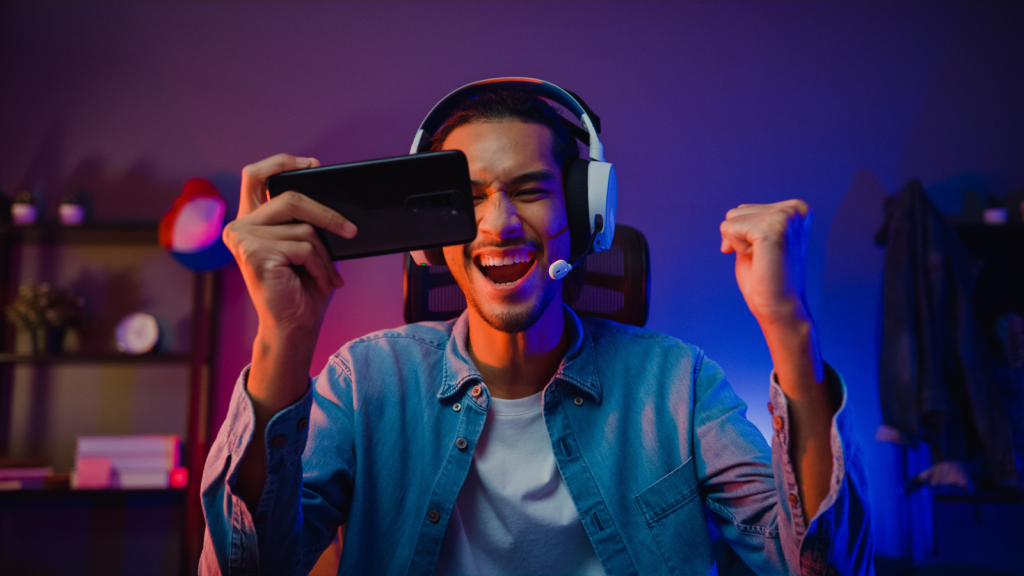Video games have come a long way since the days of Pong and Space Invaders. Today’s games are complex, immersive experiences that can teach us more than we might expect. While your gran might think you’re wasting time glued to the screen, you could actually be picking up some seriously useful skills. From problem-solving to teamwork, video games offer a unique playground for developing abilities that are valuable in the real world. So next time someone tells you to put down the controller, you can smugly inform them that you’re actually engaged in some top-notch skill development.
Problem-Solving

Games like Portal and The Legend of Zelda are essentially giant puzzles waiting to be solved. They challenge players to think creatively, use logic, and experiment with different approaches. These games train your brain to break down complex problems into manageable chunks, a skill that’s incredibly useful in real life, whether you’re tackling a tricky work project or figuring out how to assemble that infuriating flat-pack furniture.
Resource Management

Strategy games like Civilization and SimCity teach players to balance multiple resources and make tough decisions. You learn to prioritise, plan ahead, and deal with unexpected challenges. These skills translate directly to real-world scenarios, from managing your personal finances to running a business. Who knew that building virtual cities could prepare you for adulting?
Spatial Awareness

First-person shooters and racing games can actually improve your spatial awareness and hand-eye coordination. Games like Call of Duty or Forza require players to quickly process visual information and react accordingly. This can lead to improved reflexes and better awareness of your surroundings in the real world. Just don’t expect it to help you parallel park – that’s a whole different level of spatial wizardry.
Teamwork

Multiplayer games like Overwatch and World of Warcraft require players to work together towards a common goal. You learn to communicate effectively, coordinate strategies, and support your teammates. These teamwork skills are invaluable in any workplace or social setting. Plus, you get to save the world (or destroy it) with your mates – talk about a bonding experience!
Leadership

Many multiplayer games offer opportunities to take on leadership roles. Whether you’re leading a raid in an MMO or captaining a team in FIFA, you’ll develop skills in delegation, motivation, and decision-making under pressure. These leadership skills can give you a real advantage in your career or personal life. Just try not to boss your friends around during pub quiz night.
Persistence

Games are designed to be challenging, and that’s a good thing. Every time you fail and try again, you’re building resilience and persistence. Games like Dark Souls are famously difficult, but they teach players to learn from their mistakes and keep pushing forward. This “never give up” attitude is a valuable life skill that can help you overcome obstacles in any area of your life.
Quick Decision Making

In fast-paced games like Tetris or competitive fighting games, you need to make split-second decisions. This trains your brain to process information quickly and act decisively. These skills can be incredibly useful in high-pressure real-life situations, from job interviews to emergency scenarios. Though hopefully, your real-life emergencies won’t involve falling blocks or fireballs.
Creativity

Games like Minecraft and The Sims allow players to build and create within virtual worlds. This fosters creativity and imagination, encouraging players to think outside the box. These creative skills can translate into real-world problem-solving and artistic pursuits. Who knows, your Minecraft castle might inspire you to become an architect!
Language Skills

Many gamers improve their language skills without even realising it. Whether you’re reading quest text in an RPG or chatting with players from around the world, gaming can expand your vocabulary and even help you learn new languages. Just be careful not to pepper your everyday conversation with too much gaming lingo – not everyone will understand when you say “GG” after a successful meeting.
Economic Understanding

Games with in-game economies, like Eve Online or many MMORPGs, can teach players about supply and demand, market fluctuations, and investment strategies. These games often have complex economic systems that mirror real-world principles. You might find yourself better equipped to understand real-world economics after managing a virtual trading empire.
Pattern Recognition

Many games, especially puzzle games like Bejeweled or Candy Crush, rely heavily on pattern recognition. This skill is crucial in many areas of life, from data analysis to social interactions. The more you play, the better you become at quickly identifying patterns and making connections. It’s like training your brain to be a pattern-spotting ninja.
Time Management

Games often require players to juggle multiple tasks or objectives within time constraints. This can improve your ability to prioritise and manage your time effectively. Strategy games and simulation games are particularly good for this. You might find yourself applying your game-honed time management skills to your work or study habits.
Cultural Awareness

Many games are set in richly detailed worlds inspired by various cultures and historical periods. Games like Assassin’s Creed or Civilization can spark an interest in history and different cultures. While games shouldn’t be your only source of cultural education, they can be a great starting point for learning about the world around us.
Stress Management

Believe it or not, gaming can actually help with stress management. Games provide a safe space to experience and manage stress and anxiety. The challenges in games are designed to be overcome, which can boost confidence and provide a sense of achievement. Just remember to take breaks and not let gaming itself become a source of stress!
Critical Thinking

Many games require players to analyse situations, evaluate options, and make informed decisions. This develops critical thinking skills that are valuable in all areas of life. Whether you’re solving puzzles in Portal or making tactical decisions in XCOM, you’re exercising your brain and improving your ability to think critically.
Katy Willis is a writer, master herbalist, master gardener, and certified canine nutritionist who has been writing since 2002. She’s finds joy in learning new and interesting things, and finds history, science, and nature endlessly fascinating.

